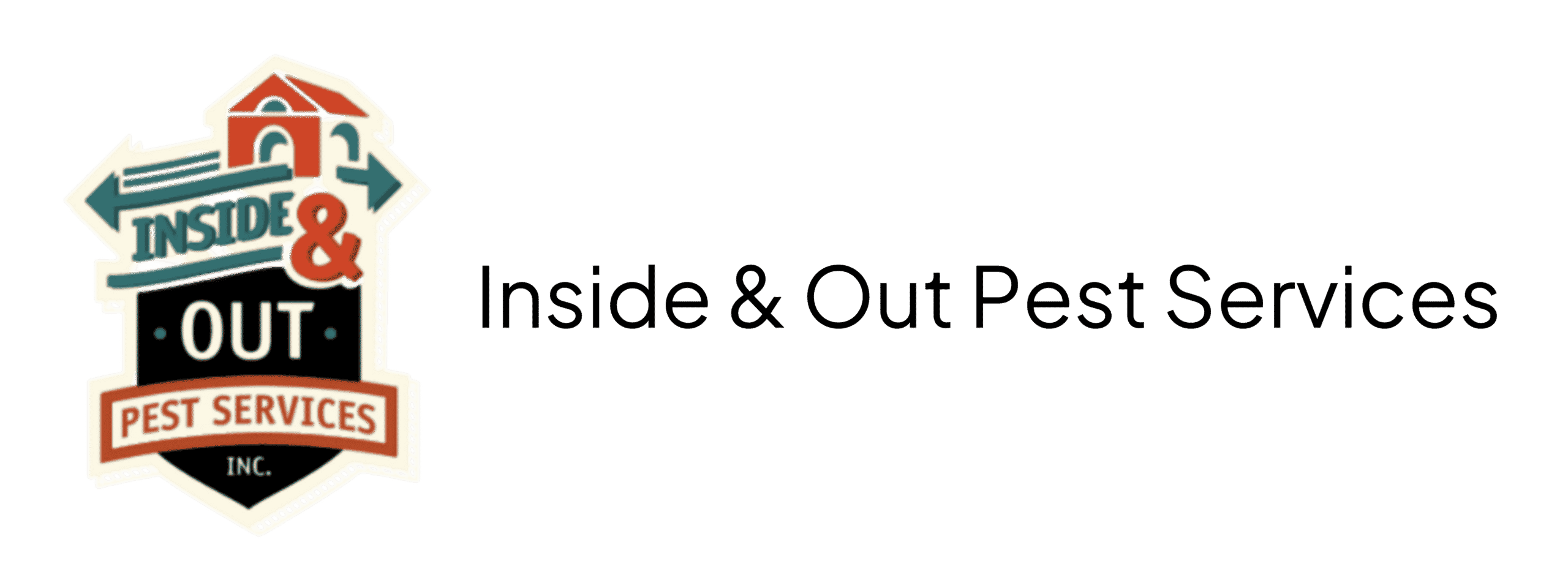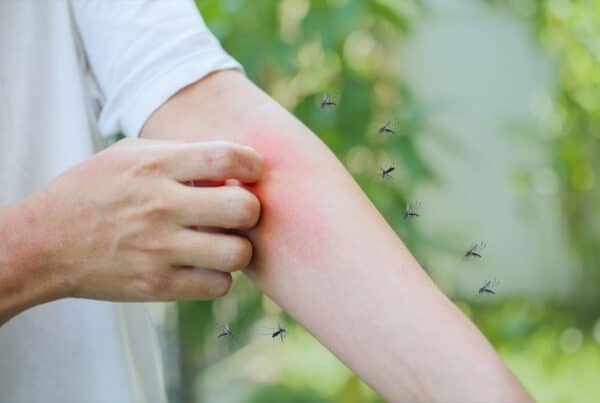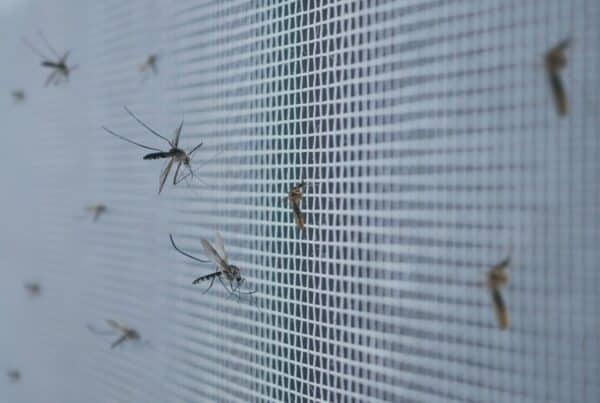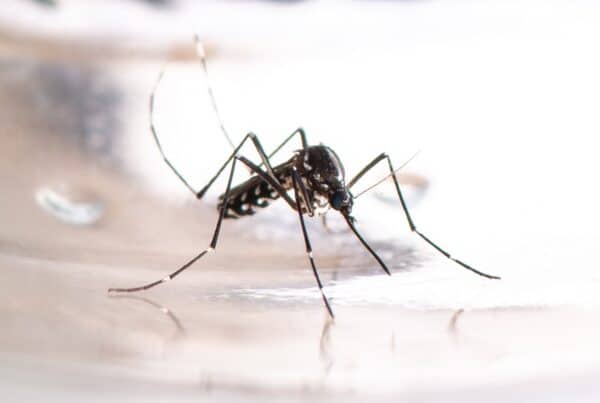If you live in Jacksonville or anywhere in Northeast Florida, mosquitoes are a year-round problem. They seem to multiply overnight, linger in every shady corner, and come back no matter what you do. But how long does a mosquito actually live? And what conditions let them survive and keep coming back?
This guide explains how long different types of mosquitoes live, what helps them thrive, and what you can do to interrupt the cycle and protect your property.
The Average Mosquito Lifespan
Mosquitoes may seem like they’re everywhere, all the time, but most only live between two to four weeks. That lifespan can vary depending on…
- The species
- The temperature
- Access to food and water
- Shelter from heat and wind
Even though each mosquito doesn’t live long, their ability to reproduce quickly means the population never seems to slow down. In Florida’s warm climate, it takes just 7 to 10 days for those eggs to become biting adults.
Stages of the Mosquito Life Cycle
To understand how mosquitoes keep going, you have to understand their life cycle. It has four stages.
- Egg – Laid on the surface of standing water, sometimes in clusters
- Larva – Hatches into a wriggling swimmer that feeds on organic matter
- Pupa – Transforms into an adult but does not eat during this stage
- Adult – Emerges from the water ready to fly, feed, and reproduce
This process happens fast in places like Florida. Mosquitoes can go from egg to adult in under two weeks when the weather is warm, especially after summer rains or backyard irrigation.
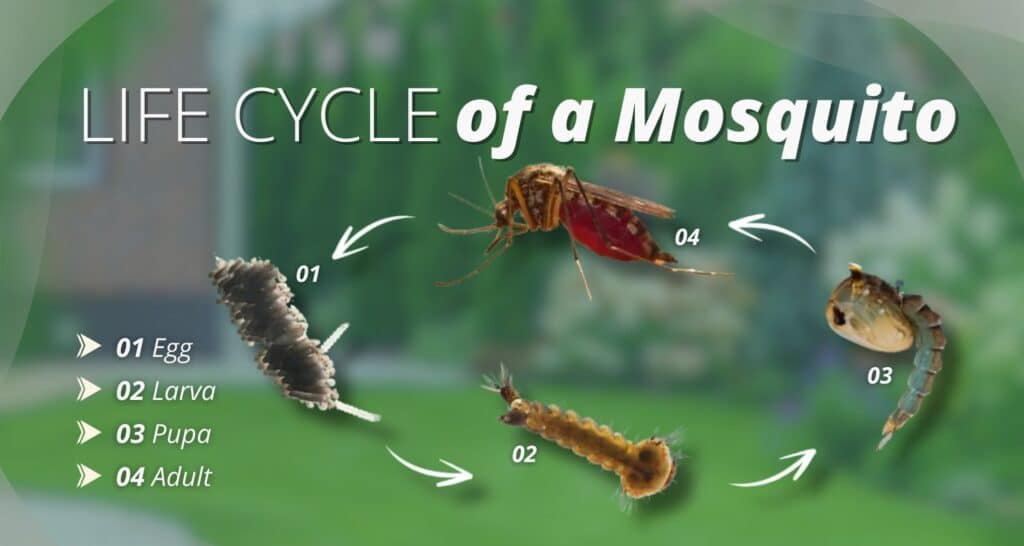
How Long Do Adult Mosquitoes Live?
Not all mosquitoes live the same length of time. Here’s a quick breakdown:
- Male mosquitoes usually live less than one week. They do not bite and survive by feeding on nectar.
- Female mosquitoes typically live two to four weeks, depending on the environment. They require blood meals to lay eggs.
- Some species, like Culex pipiens, can survive for several months by entering a dormant state called diapause, but that’s more common in colder regions.
In Florida, winter temperatures are often warm enough to allow mosquito activity year-round. This means there is no true “off-season” unless conditions turn extremely dry or cool.
What Makes Them Live Longer?
Jacksonville’s climate creates the perfect storm for mosquito survival. Here’s what gives them an edge:
1. Warm and humid weather: Mosquitoes thrive in temperatures between 70°F and 90°F. Jacksonville stays within this range for much of the year. Add in frequent rain and high humidity, and you’ve got ideal breeding conditions.
2. Standing water: Anything that holds water for more than a few days can become a mosquito nursery. This includes:
- Birdbaths
- Buckets
- Trash can lids
- Clogged gutters
- Potted plant trays
- Low spots in lawns
The Florida Department of Health recommends checking your property weekly for standing water, especially after rain.
3. Shady resting places
Mosquitoes hide from the sun in shrubs, under decks, in overgrown grass, or near sheds. These cool, dark spaces help them conserve energy and moisture, making it easier to survive the hottest part of the day.
4. Access to food
While only females bite, both males and females feed on nectar from plants. If your landscaping includes flowering shrubs or you have pets outdoors, your yard may be even more appealing to mosquitoes.
Why Mosquitoes Stay Active in Florida
Unlike many parts of the country, mosquitoes in the Sunshine State don’t disappear after summer.
According to the FSU Florida Climate Center, daily average relative humidity in major cities ranges from 74% to 76% year‑round, with morning humidity levels often even higher. That means most days in Florida feel consistently sticky and humid, morning through evening.
Add in the frequent rain, and mosquitoes can remain active for most of the year. Some of the most common mosquito species in this area include:
- Aedes aegypti – active during the day and known to transmit Zika and dengue
- Culex quinquefasciatus – common in urban areas and active at night
- Anopheles species – capable of carrying malaria in other countries
Because different species are active at different times, daytime and nighttime mosquito bites are both possible in Jacksonville.
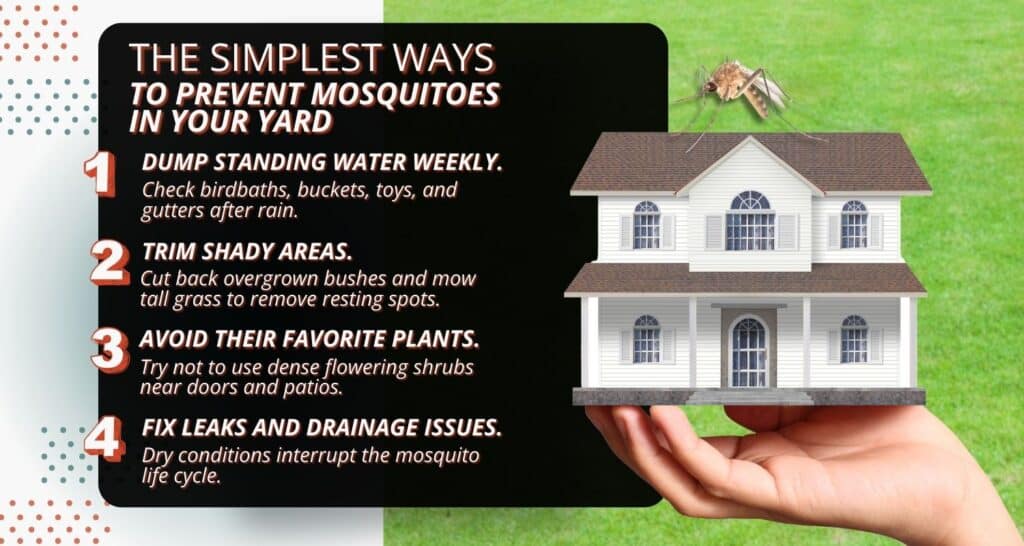
Other Related Questions Homeowners Ask
How far do mosquitoes travel?
Most mosquitoes stay within 300 feet of where they hatch. This means if you’re getting bitten, the source is probably close to your home.
Can mosquitoes breed indoors?
Yes, especially in areas with standing water like basement drains, sink traps, or overwatered houseplants. Sealing entry points and fixing leaks can help.
When are mosquitoes most active?
Most species bite during dawn and dusk, but some, like Aedes aegypti, are active all day. If you’re seeing mosquitoes in the afternoon, that’s likely the species you’re dealing with.
What diseases do Florida mosquitoes carry?
Mosquitoes in Florida have been known to transmit:
- West Nile virus
- Zika virus
- Eastern equine encephalitis
- St. Louis encephalitis
This is one reason Florida residents are urged to practice mosquito control year-round.
When to Call a Professional
If you’ve tried mosquito sprays, repellents, or DIY prevention and still have bites, it’s time for professional treatment. Mosquitoes aren’t just annoying. They can put your health and comfort at risk.
At Inside & Out Pest Services, we take a comprehensive approach that includes:
- Inspecting your property for breeding areas
- Treating mosquito-prone zones with targeted solutions
- Recommending long-term prevention strategies
- Using safe, effective products designed for Florida pests
We know the habits of local mosquito species and how to interrupt their life cycle without over-treating or damaging your yard.
Conclusion
A mosquito may live just a few weeks, but in the right conditions, that’s more than enough time to lay thousands of eggs and create lasting problems. In a climate like Jacksonville’s, they never really go away unless you take action.
Understanding their life cycle, what keeps them going, and how to eliminate breeding grounds is the best way to protect your family and enjoy your outdoor spaces.
If mosquitoes won’t leave you alone, the Inside & Out team is ready to help you take your yard back for good.
